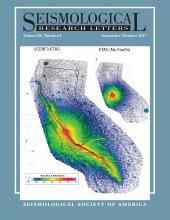
An ethical review board in Sweden is asking journals to retract six papers co-authored by former star surgeon Paolo Macchiarini, after concluding that he and his co-authors committed misconduct.
One of the papers is the seminal 2011 article in The Lancet, which described the first case of a transplant using an artificial trachea seeded with the patient’s own stem cells, and now bears an expression of concern from The Lancet editors. Over time, multiple authors have asked to be removed from the paper.
The Expert Group on Scientific Misconduct at the Central Ethical Review Board has determined that concerns over that paper — and five others co-authored by Macchiarini, once based at the Karolinska Institutet (KI) — were justified. In a press release, it says:
Continue reading Swedish review board finds misconduct by Macchiarini, calls for six retractions




 A social psychology journal has added an expression of concern to a paper by
A social psychology journal has added an expression of concern to a paper by 

